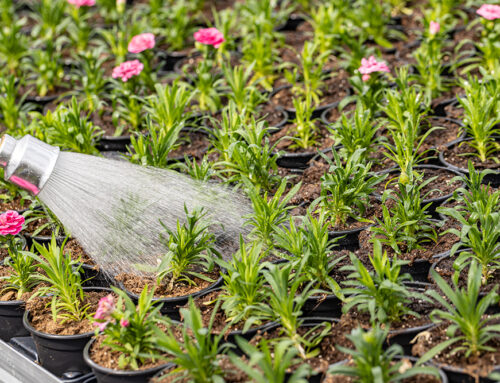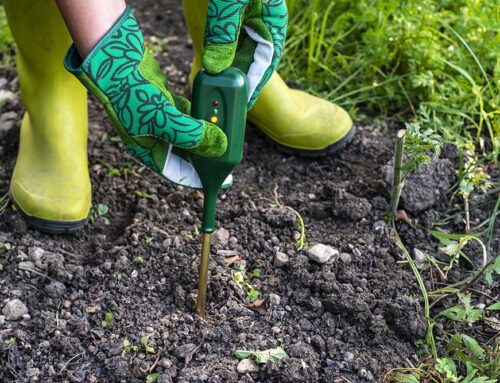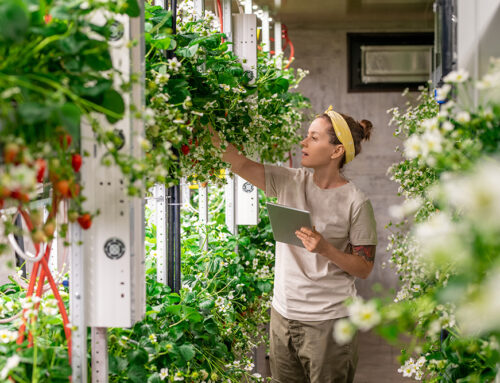When it comes to pest control organic methods, a variety of practical strategies can be used to keep your home or garden free of pests. While some people opt for chemical pesticides, others prefer to stick with natural methods that are safer for the environment and human health.
Here are ten organic pest control methods if you’re looking for ways to control pests without using chemicals.
1. Pheromone Traps
Pheromone traps are a valuable tool in the fight against nuisance pests. Found everywhere, from large farms to residential gardens, they work by releasing scents that attract and capture pests like moths, aphids, and beetles.
With minimal effort, these devices can effectively trap pests on contact—preventing economic losses due to crop damage and providing peace of mind for homeowners alike. Pheromone traps can give you a significant leg up in controlling and managing invasive species populations without harsh chemicals.
2. Floating Row Covers
Floating row covers offer gardeners a valuable way to protect their crops. By covering them with this lightweight non-woven material, which allows the passage of air, light, and water while keeping out garden pests such as aphids and moths, gardeners can give their plants the extra bit of protection they need to stay healthy.
Floating row covers provide an effective barrier to certain insect pests, reducing the need for chemical pesticides and helping to ensure a bountiful harvest of fresh produce and healthy plants. Plus, this low-cost solution is easy to install and dismantle, making it an ideal option for any gardener looking to give their crops extra care.
3. Neem Oil
Neem oil is a natural insecticide derived from the seeds of the neem tree. It works as an effective pest control method by killing off various insects, including Japanese beetles, Colorado potato beetles, squash bugs, and Mexican bean beetles. It does not kill beneficial insects such as bees, ladybugs, and praying mantis.
Neem oil is also safe for use around children and pets, making it an excellent option for those looking to keep their families safe while controlling garden pests.
4. Diatomaceous Earth
Diatomaceous earth is one of the safest and most natural ways to protect your vegetable garden from unwanted pests. Composed of fossilized remains of diatoms, DE can effectively penetrate an insect’s exoskeleton and absorb the oils and fats contained therein. This causes the insect to dry out and die eventually.
However, DE should be used with caution, as it can harm or even kill beneficial insects that might inhabit your vegetable garden if not carefully controlled. Therefore, proper care should be taken when using this natural product to maximize its effectiveness and minimize potential lingering risks.
5. Horticultural Oil
Horticultural oil is an effective and natural pest control solution and is relatively easy to find in gardening stores. It works by coating the body parts of invasive insects with a thin, almost invisible layer of oil, which clogs their breathing pores and suffocates them. This method quickly and safely eliminates pests such as spider mites, making it an ideal solution for home gardeners looking to save time and money on insect control.
Product instructions are usually included on the label, so please read these instructions before applying for the best results.
6. Insecticidal Soap
Using insecticidal soap is a great way to protect your garden without hurting beneficial insects – such as bees and ladybugs – that are essential in keeping the ecosystem balanced.
This chemical-free insect control works by coating the outer body of pests like aphids, spider mites, and whiteflies with an invisible film, blocking their breathing holes and causing their eventual death. Insecticidal soap is also highly effective against soft-bodied insects like scale and mealybugs.
The best part? Application is easy — mix at a rate of one tablespoon of product per gallon of water, give the plant a good shower, and you’re done!
7. Bacillus Thuringiensis
Controlling pests in your garden doesn’t have to mean harmful chemicals. Bacillus thuringiensis, or BT, is a naturally occurring bacteria widely used by organic farmers for pest control.
BT produces toxins that are harmless to humans but deadly to targeted insects like caterpillars and cutworms. When ingested, the bacteria paralyzes the insect’s digestive system, killing it within a few days.
You may spray BT in affected plants or when identifying insect larvae. BT is effective against various caterpillars, but you may need to reapply after heavy rains or irrigation.
8. Spinosad
Organic pest control products such as spinosad are also available on the market. Spinosad is a chemical pesticide typically used in agricultural settings, but it has also been used to fight severe pest infestations in residential and commercial applications. I
It works by contact and ingestion, disrupting insect nerve signals and quickly killing the pests. Spinosad has a fast action time and is relatively safe to use around humans and animals when appropriately applied.
Additionally, its active ingredients are biodegradable and sustainable, making Spinosad an effective yet environmentally-friendly option for managing insect populations.
9. Rotenone
Organic gardening has been gaining popularity over recent years, and it can be immensely beneficial from using rotenone. This is an all-natural chemical compound derived from various plants and has been used for centuries in agriculture.
As a natural insecticide, rotenone offers organic gardeners the ability to control bothersome pests without harsh chemicals. Additionally, its use increases soil fertility and is biodegradable, making it a safe option for maintaining healthy vegetation.
Be cautious when your garden is near a lake or river since rotenone is toxic to fish and other aquatic life forms.
10. Electric Fences
Organic pest control methods have come a long way in recent years, and electric fences are one of the most effective ways to keep out unwanted pests. Electric fences work by emitting an electric shock every time they’re touched, teaching animals to stay away from your garden.
Electric fences protect gardens from rabbits, deer, mice, and other small animals that may wreak havoc on your plants.
The best part? Electric fences are relatively easy to install and maintain, making them a practical and long-term solution for keeping unwanted pests out of your garden!
Closing Thoughts
Overall, organic pest control is a great way to keep your home or garden safe and free of pests without resorting to harsh chemicals. Whether you choose one of the methods listed above or an alternative solution, like using a natural predator such as ladybugs, it’s essential to know how to successfully repel the pests in your environment.
Not only will this help you protect your home and outdoor spaces, but it’ll also help ensure you’re keeping people and animals safe from potential harm caused by chemical pesticides.
Remember, when going the organic route, consistency is key! With preparation and know-how, you can create a sustainable environment free of pesky critters! Spend some time researching any pest control method so that you understand precisely what you’re up against.







Leave A Comment